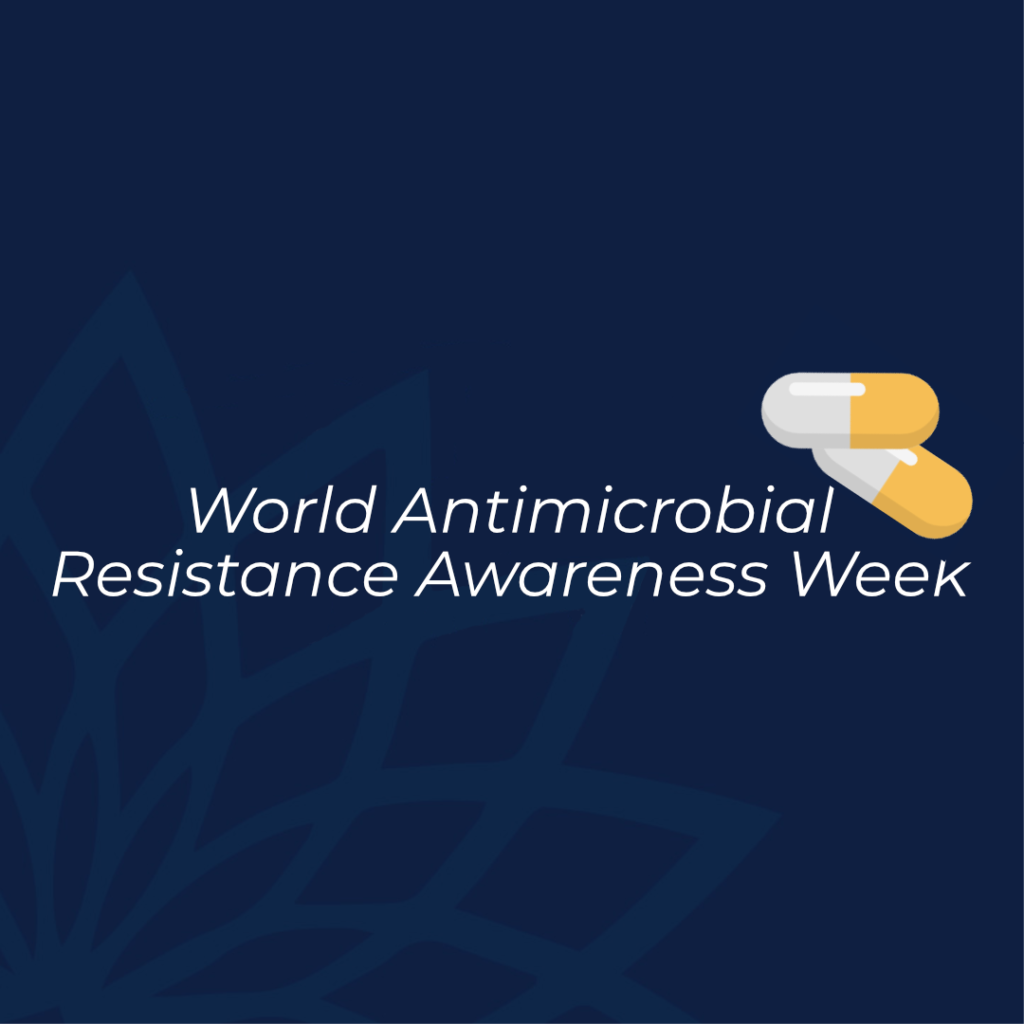This week marks World Antimicrobial Resistance Awareness Week. Introduced by the World Health Organization this week is a global campaign to increase understanding and promote best practice for antimicrobial use.
Antimicrobials are a group of medicines including antibiotics, antifungals, antivirals and antiparasitics which are used to treat infections in humans, animals and plants.
Misuse of these puts us all at risk of antimicrobial resistance. This means the microbes have changed and learned how to resist the drugs we use to treat them due to frequent exposure. To slow this down, we need to cut the unnecessary use.
In healthcare, resistance mainly comes from incorrect use of antibiotics. However, risks can also come from overuse of antimicrobials in farming/agriculture, the veterinary community and other environmental organisations.
Below are some key messages to remember;
- Only take as prescribed – Antimicrobials are prescribed by a healthcare professional and include instructions on how and when to take. Some need taking with/without food, some need to avoid alcohol during the course. This is to prevent other problems occurring
- Always finish the course – Healthcare professionals prescribe the correct dose and length of course required to treat the problem. Doubling-up, stopping early or stretching the length of time the course runs for is not beneficial. For some infections, shorter courses work just as well and are safer than extending the course
- Never take leftovers – Different antimicrobials are prescribed to treat different infections therefore it cannot be guaranteed the antimicrobials you have as leftovers will treat the problem. Antibiotics don’t always cure toothache and dental treatment is often required. Always return unused antimicrobials to your pharmacy for safe disposal
- Never share with others – Antimicrobials are prescribed by professionals in patient-specific way. Taking into account many factors such as dosage, allergies and interactions with other prescribed medications. Sharing with others could put your friends and family at risk of serious reactions
- Maintaining good hygiene – Prevention is better than cure and at the practice we strive to treat problems before the need for antimicrobials wherever possible. Strict infection control procedures for staff hygiene, PPE and sterilisation of instruments all help reduce the risk and we welcome patients to attend for regular screening check-ups to treat routine dental problems before the need for antimicrobials. There are always times where problems will arise spontaneously with no background cause however maintaining a clean environment with good brushing/interdental cleaning and hand hygiene will help reduce the bacterial load on your body
